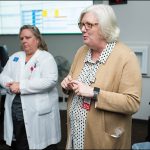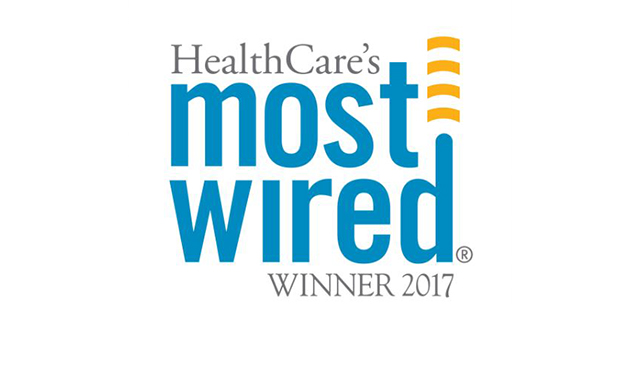 Recently, Texas Children’s executives and employees welcomed Judy Faulkner, CEO and founder of Epic Systems. Faulkner walked the group through a timeline of successes and innovations that have resulted from Texas Children’s 10-year partnership with Epic.
Recently, Texas Children’s executives and employees welcomed Judy Faulkner, CEO and founder of Epic Systems. Faulkner walked the group through a timeline of successes and innovations that have resulted from Texas Children’s 10-year partnership with Epic.
“We meet with our Epic partners on a very frequent basis,” said Julie McGuire, Director of Texas Children’s Enterprise Systems. “However, this is the first meeting with Judy onsite since the vendor demos more than 10 years ago, and it was an honor.”
Epic is essentially applications that support Texas Children’s comprehensive electronic health record system. Epic provides Texas Children’s with an integrated suite of clinical and financial applications, including billing, admissions, scheduling, patient charts and information, and order entry. It touches virtually every employee and, more importantly, every patient that passes through our system. Epic software is used in hospitals, homes and even hand-held devices.
Faulkner’s visit began with a brief overview of Texas Children’s history, presented by Executive Vice President Michelle Riley-Brown, who detailed the expansion of our global footprint and technology development over the years.
“Our goal is not to chase the quantity,” Riley-Brown said. “We chase the quality.”
Faulkner shared Epic’s vision, a current snapshot and plans for the future. Although personal development is always key, she emphasized that “it takes a village” when it’s comes to expanding technology as a whole.
“Keep in touch with other Epic users,” Faulkner said. “Share with others how you have expanded.”
Faulkner said she was impressed with how Texas Children’s has continued to evolve and respond to changing health care methods to meet the needs of patients.
“Texas Children’s Pediatrics was the first to use Epic strategies within the hospital, and we have been extremely successful thus far,” said Texas Children’s Pediatrics President Kay Tittle. “With the opening of multiple urgent cares and expanding to Austin, we are well on our way.”
During Faulkner’s visit, the Information Services team took her to the hospital’s nucleus – Mission Control.
Mission Control is equipped with state-of-the-art technology in a large, high-tech space on the third floor of Texas Children’s Pavilion for Women. The suite houses representatives from Security, Facilities, Room Management, Transport Services and Critical Care.
When a patient is transferred to or from Texas Children’s Hospital, several wheels are set into motion at Mission Control to make the process run smoothly for our patients and their families. During the first month Mission Control was launched last year, the Transport Team reduced their time from dispatch to pick up by 20 minutes. When Faulkner asked about technology to improve remote patient monitoring in Mission Control, the team assured her it is on the horizon.
“We’re definitely on the path to advancing the way we monitor patients,” said Myra Davis, Senior Vice President of Information Services. “Ultimately, our plan is that Mission Control will have remote monitoring so we always have that extra set of trained eyes on our most critical patients”
Also on the horizon is an Epic upgrade, currently scheduled for summer 2019. Both Texas Children’s and Epic Systems continue to be focused on elevating how we use Epic technology, implementing new modules, maintaining a concise alignment with Epic guidelines, and ensuring we meet the system’s strategic priorities of access and care coordination.
“It’s been an incredible 10 years with Epic, and I know as we continue to grow as an organization, the need to become even better as we get bigger will be even more critical,” Davis said. “I’m excited about seeing how our efforts will flourish as a result of this partnership.”

























